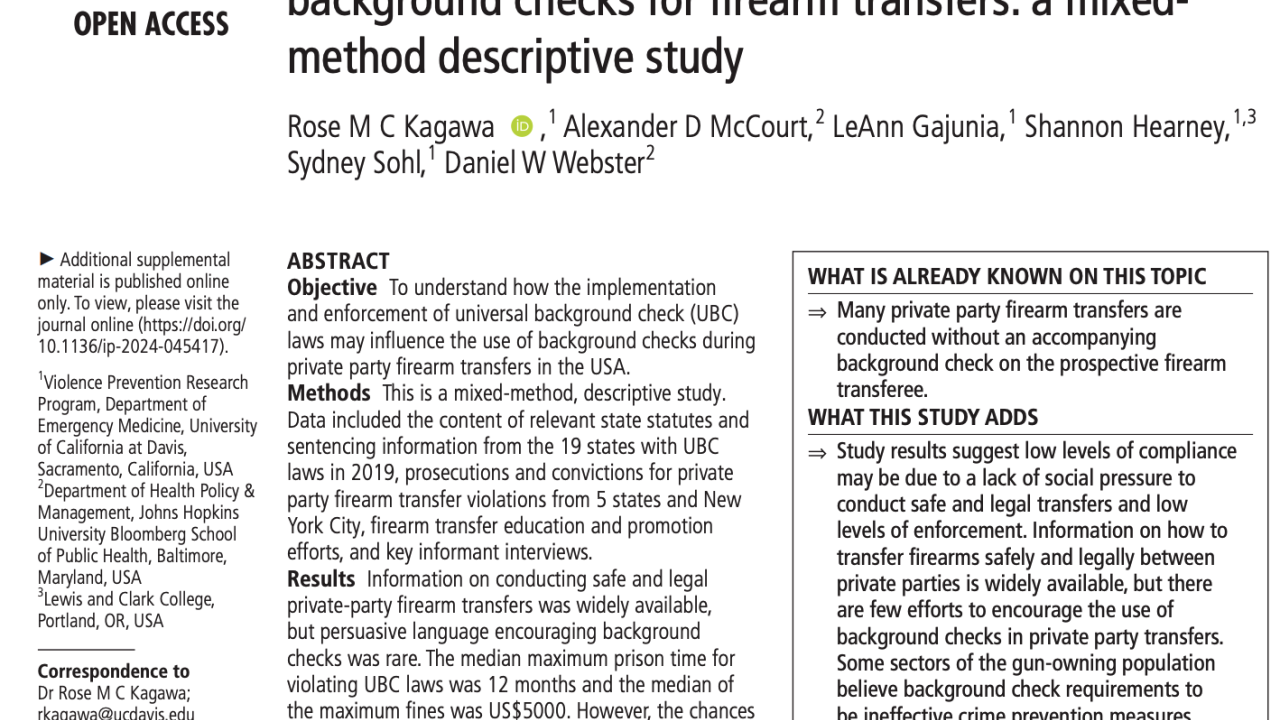
Factors that may influence uptake of private party background checks for firearm transfers
A mixed-method descriptive study
Quick Summary
- Given evidence that private party firearm transfers are common and frequently do not include background checks, efforts to establish conducting a private party background may be fruitful areas for future practice and research.
Abstract
Objective To understand how the implementation and enforcement of universal background check (UBC) laws may influence the use of background checks during private party firearm transfers in the USA.
Methods This is a mixed-method, descriptive study. Data included the content of relevant state statutes and sentencing information from the 19 states with UBC laws in 2019, prosecutions and convictions for private party firearm transfer violations from 5 states and New York City, firearm transfer education and promotion efforts, and key informant interviews.
Results Information on conducting safe and legal private-party firearm transfers was widely available, but persuasive language encouraging background checks was rare. The median maximum prison time for violating UBC laws was 12 months and the median of the maximum fines was US$5000. However, the chances of being prosecuted in our sample states were extremely low. Finally, public support for UBC policies is high, but among some firearm owners, the perceived utility of such laws is very low.
Conclusions Available data suggest that enforcement of UBC requirements for private party transfers is rare. Additionally, advocacy efforts to encourage private gun sellers to make sales contingent on buyers passing background checks are few. People may choose to avoid the additional burden of undergoing a background check when they feel neither social nor legal pressure to comply. The results of this research can be used to identify potential avenues for enhancing enforcement of and compliance with private party firearm background check laws.
Media Resources
Read the study in Injury Prevention
